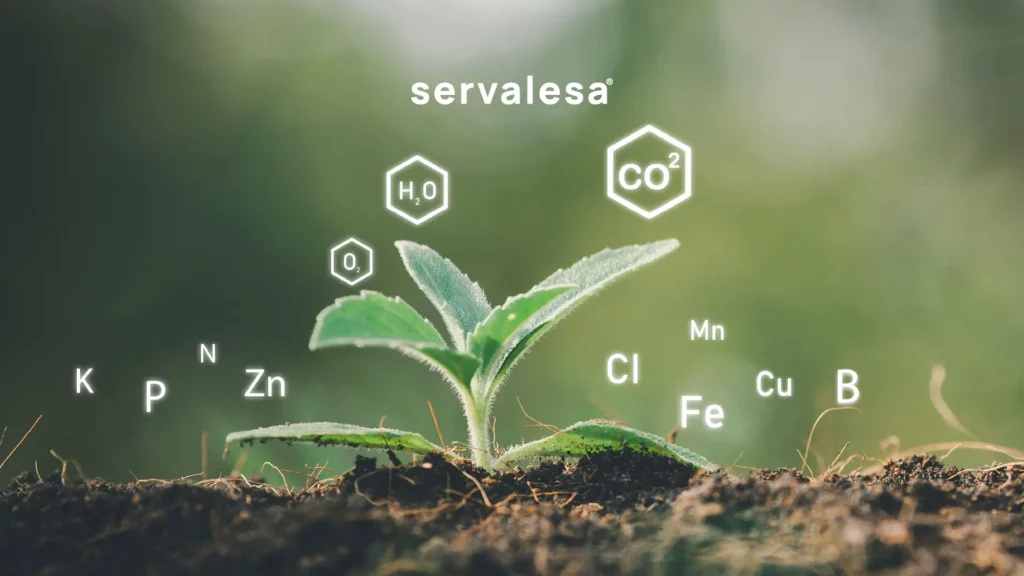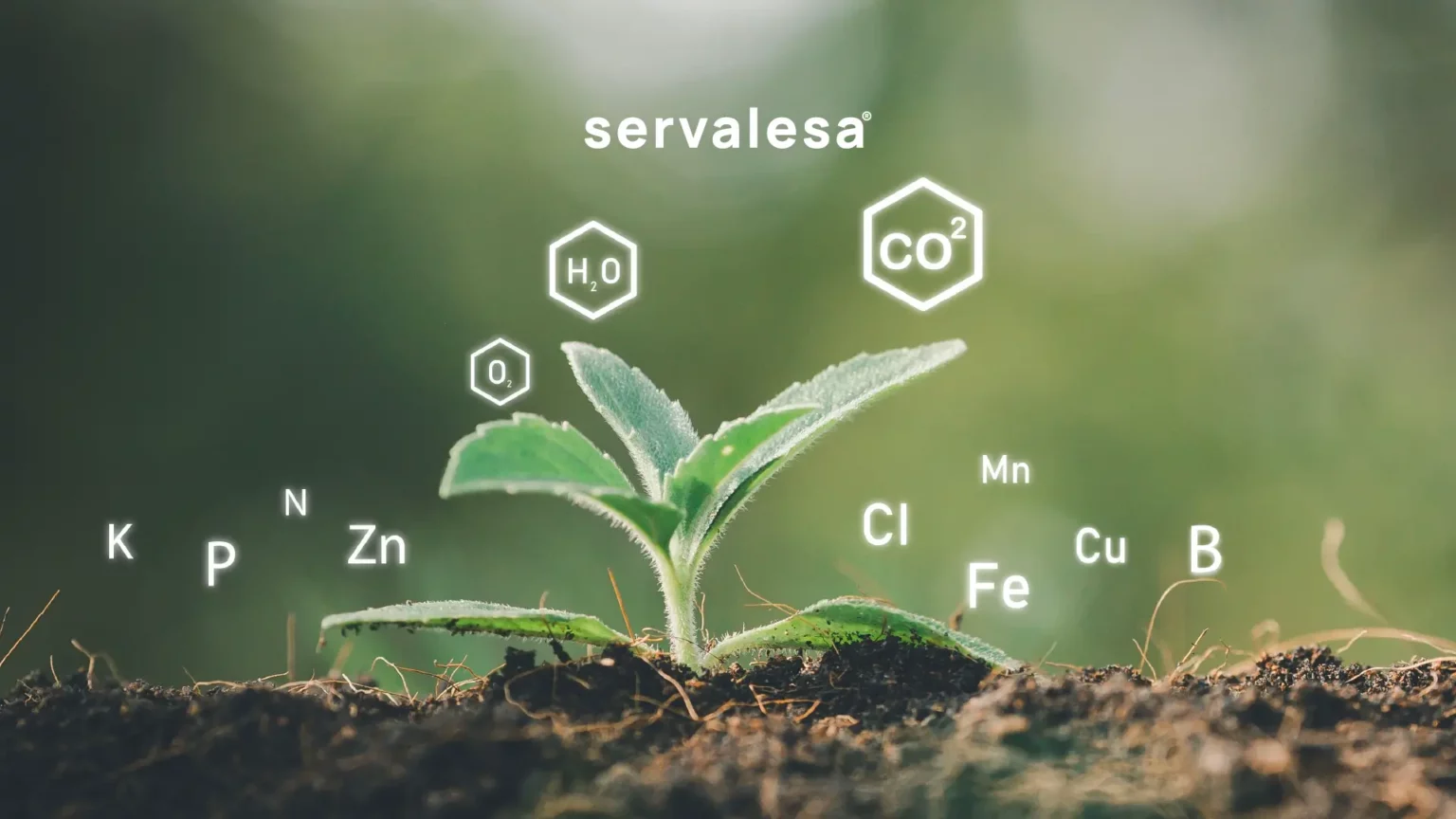The following article explores how specialized microorganisms improve fertilisation by making phosphorus, potassium, and nitrogen more assimilable for crops, optimizing their growth and health.
It is well known that phosphorous (P), potassium (K) and nitrogen (N) are present in our soils, but not always in a form that can be assimilated by crops. Phosphorus and potassium are elements that can be blocked and plants alone cannot assimilate these nutrients. A similar situation occurs with atmospheric N, which plants cannot assimilate. The only ones that can make these nutrients available to the crop are microorganisms.
THE MICROBIAL IMPACT IN THE SOIL
On the one hand, phosphorus in soil can be found as phosphate salts formed by reacting with cations in the soil, or as phosphates that are part of organic compounds. Certain microorganisms are able to release phosphorus from inorganic sources by solubilisation and from organic sources by mineralisation. In both cases, phosphorus is available to the plant in the soluble fraction of the soil. This is due to the organic acids and/or enzymes produced by the microorganisms, which release the phosphates and make them available to the plant.
On the other hand, potassium is either immobilised between the clay layers or adsorbed on the surface of the clay particles. As in the previous case, certain microorganisms are able to mobilise this potassium and make it available to the plants. The organic acids produced by the microorganisms deprotonate in alkaline environments and thus enable the exchange of H+ for the K+ cations immobilised in the clays. For example, potassium is released by the alteration of silicates, but it is also possible by the mineralisation of humus.
RIZOBACTER® PK: IMPROVES THE FERTILISATION OF THE SOIL
The need to optimise natural resources as much as possible, among them fertilisers, which are necessary for good crop nutrition. There is no doubt that the best way to optimise phosphorus and potassium is to use those that are already in the soil and allow a reduction of fertilisation and adjust it as much as possible to the needs of the crop: no more and no less, just enough and what is needed.
This is why the need for the product RIZOBACTER® PK, based on two plant growth promoting rhizobacteria (PGPR): Bacillus megaterium (strain BC07-Bmeg) and Pseudomonas fluorescens (strain BC06- Pf). This combination is ideal, as both strains have high phosphorus solubilisation and potassium mobilisation potential.
In addition, these microorganisms also produce other types of secondary metabolites, including siderophores: iron chelating agents, which make iron available to the plant, thus aiding plant nutrition.
RIZOBACTER® N: OPTIMIZATION OF NITROGEN IN THE CROP
Along the same lines of fertiliser unit reduction, it is well known that nitrogen is one of the least stable elements in the soil because of its high tendency to leach in its nitric form. In this respect, microorganisms that fix atmospheric nitrogen, which is an abundant element in the soil, play a fundamental role in the fertilisation of crops by providing a means of supplying this nutrient. In this sense, at Servalesa we have RIZOBACTER® N, a product based on Azotobacter chroococcum (strain BNT-09- Ac), which has a very high atmospheric nitrogen fixation capacity. And that, regardless of the crop, it is able to reduce N2 to NH3. Thus, Azotobacter chroococcum works by fixing nitrogen according to the needs of the crop, since its performance is directly related to root activity and the exudations produced by the roots.
Another important feature of RIZOBACTER® N is the production and supply of metabolitescincluding AAC deaminase, an enzyme that inhibits ethylene synthesis and thus enables the plant to cope with various abiotic stresses. Another notable metabolite is the auxins, which have many stimulating functions, such as increasing root development and, consequently, the nutritional supply to the crop.
In conclusion, applications of microorganisms are more than justified in agriculture. In this particular case, when applying RIZOBACTER® PK and RIZOBACTER® N, a more efficient use of nutrients is achieved. Not to mention the stimulating benefits they provide, which are becoming increasingly important in present and future agriculture.

Iris García – Agricultural Engineer and Sales Delegate in the North East Zone
Jonatan Mateo – Technical Agricultural Engineer and Sales Manager in the North Zone




